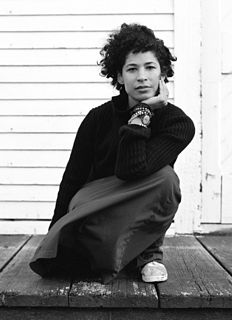Цитата Николаса Г. Карра
Мы не ограничиваем свои умственные способности, когда сохраняем новые долгосрочные воспоминания. Укрепляем их. С каждым расширением нашей памяти происходит расширение нашего разума. Сеть представляет собой удобное и убедительное дополнение к личной памяти, но когда мы начинаем использовать Сеть в качестве замены личной памяти, минуя внутренние процессы консолидации, мы рискуем опустошить свой разум от их богатств.
Темы цитат
Непреодолимая
консолидация
Ограничение
Удобное
каждое
Увеличение
Расширение
Внутренний
интеллект
Длинные
долговременные
воспоминания
Память
Ментальная
умственная
сила
Разум
Новое
Наши
личные
силы
Процессы
обеспечивают
богатство
Риск
Старт
Магазин
Усиление
Замена
Дополнение
Срок
использования
Интернета
Связанные цитаты
Как и наши физические тела, наша память теряет форму. В детстве мы постоянно получаем новый опыт, но к тому времени, когда нам исполняется 20 лет, мы начинаем вести более сидячий образ жизни как умственно, так и физически. Наша жизнь становится рутиной, и мы перестаем напрягать свой мозг, и наша память начинает страдать.
Когда мы становимся старше, угасает наша кратковременная память, а не долговременная память. Возможно, мы развились таким образом, чтобы иметь возможность рассказывать молодому поколению об историях и опыте, сформировавших нас, которые могут быть важны для последующих поколений, если они хотят процветать. Однако я беспокоюсь о том, что может случиться с нашим разумом, если большинство историй, которые мы слышим, о жадности, войне и жестокости
Наша способность двигаться вперед как развивающиеся существа основывается на здоровых отношениях с прошлым. Психотерапия, этот широко распространенный метод улучшения психического здоровья, в значительной степени зависит от памяти и способности извлекать и систематизировать образы и события из личного прошлого. первый черновик, а затем вернуться за вторым черновиком — мы делаем работу памяти.
Если какую-либо способность нашей природы можно назвать более чудесной, чем остальные, то я думаю, что это память. Кажется, что в способностях, неудачах, неравенствах памяти есть что-то более непостижимое, чем в любом другом нашем разуме. Память иногда бывает такой цепкой, такой полезной, такой послушной; у других, таких сбитых с толку и таких слабых; и в других снова, так тиранически, так бесконтрольно! Мы, конечно, чудо во всех отношениях; но наши способности вспоминать и забывать кажутся особенно незаметными.
Мы все просто набор привычек, сформированных нашими воспоминаниями. И в той мере, в какой мы контролируем свою жизнь, мы делаем это, постепенно изменяя эти привычки, то есть сети нашей памяти. Ни одна продолжительная шутка, или изобретение, или озарение, или произведение искусства никогда не были созданы внешней памятью. По крайней мере, еще нет.
Но боль может быть подарком для нас. Помните, в конце концов, что боль — это один из способов запечатлеть в памяти то, что исчезает, что уносится. Мы навсегда фиксируем их в своем уме тоской, болью, воплем. Боль, боль, которая кажется невыносимой в то время, есть первый запечатлевающий шаг памяти, краеугольный камень храма, который мы возводим внутри себя в память об умерших. Боль — часть памяти, а память — дар Божий.
Мне кажется, что память тоже так работает. То, что мы помним о том, что было сделано с нами, формирует наш взгляд, формирует нас, определяет нашу позицию. Но то, что мы помним, прошло, этого больше не существует, и все же мы держимся за это, живем этим, отдаем ему так много контроля. Кем мы становимся, когда отбрасываем сценарии, написанные историей и памятью, когда каждого человека перед нами можно увидеть свободным от культурного или личного нарратива, который мы унаследовали или придумали? Когда мы сами сможем вкусить эту свободу.




































